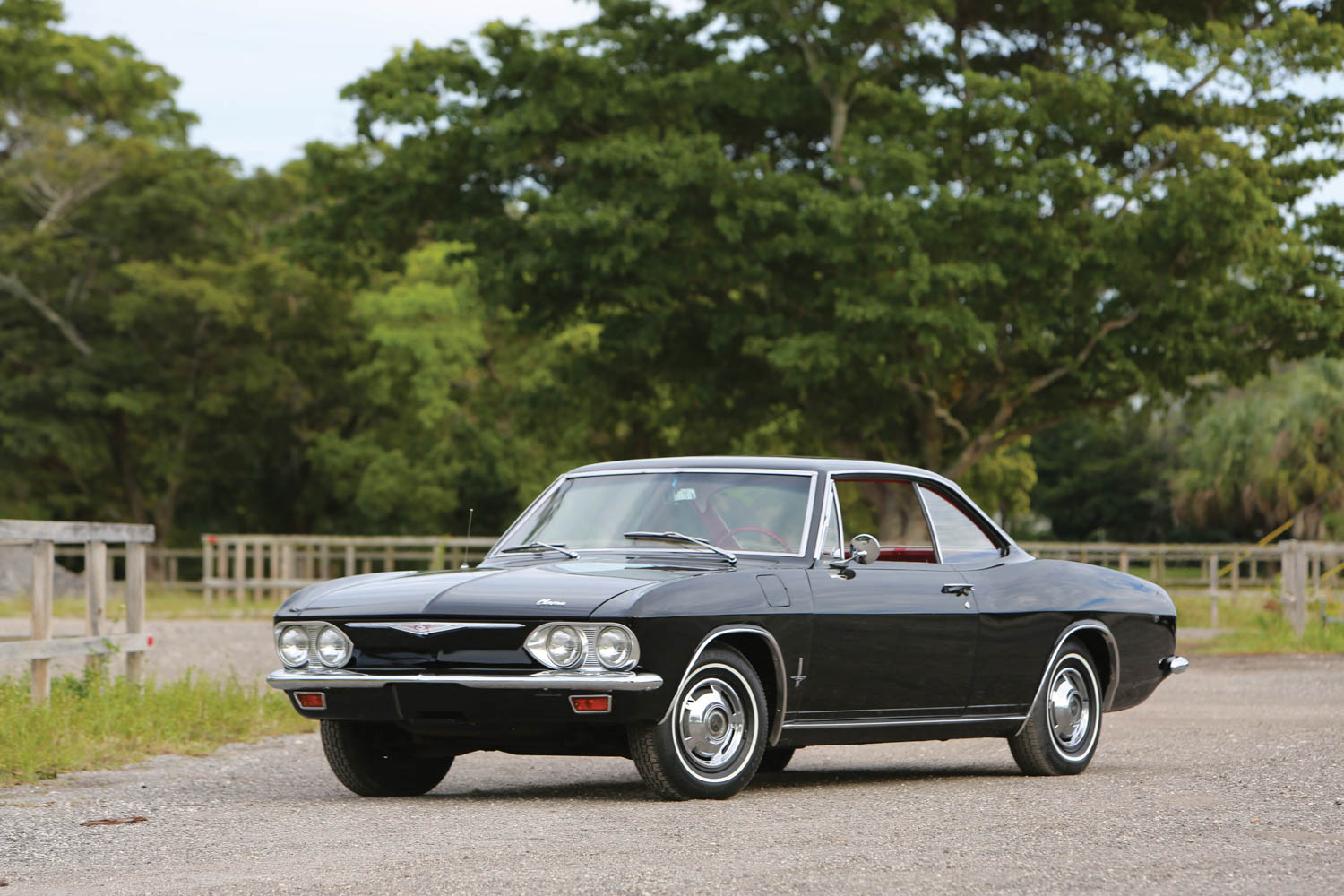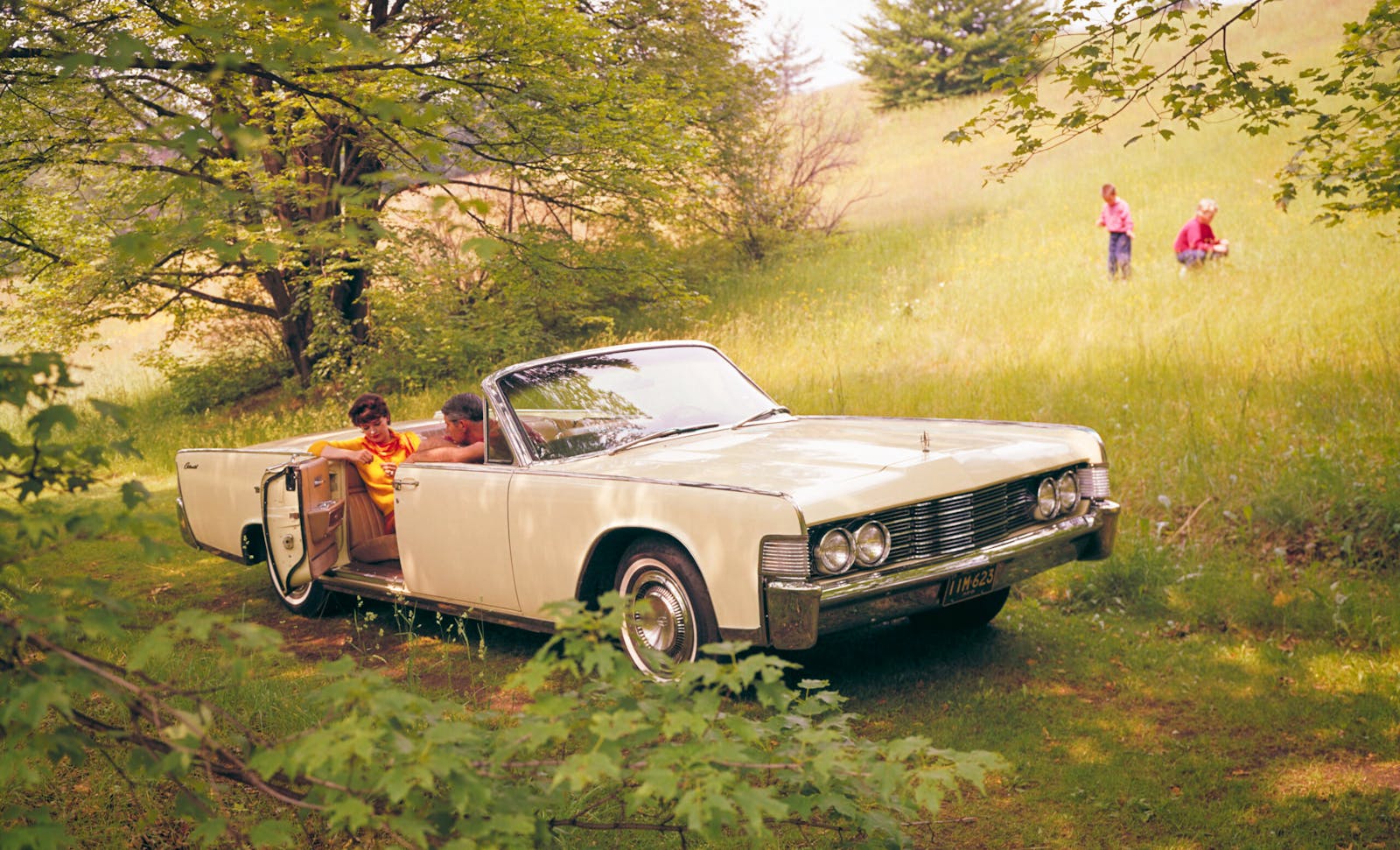Media | Articles
Look out world, 1965–69 Chevy Corvairs are rising fast
It’s hard to tell what Ralph Nader thinks about the second-generation 1965–69 Chevrolet Corvair. (We know what buyers have been thinking lately, but we’ll get to that in a bit.) We’re guessing that if Chevy had rolled out the ’65 Corvair first, Nader wouldn’t have devoted an entire chapter to the first-generation rear-engine compact car in his best-selling book, Unsafe at Any Speed: The Designed-In Dangers of the American Automobile.
Alas, the second generation—commonly called a late-model Corvair—naturally follows the first, and the early Corvair drew Nader’s ire. Contending that the car possessed a rear-suspension design flaw that made it prone to flipping if forced to make a severe, sudden turn, Nader called the Corvair “the one-car accident.” Oh, sure, in 1971 the National Highway Safety Transportation Board declared that the Corvair was as safe as any car of its era (and our own Larry Webster tried his best to flip one in 2017), but the model was long dead by then.
Ironically, the second-gen Corvair had already received a fully independent rear suspension for 1965—prior to the release of Unsafe at Any Speed in late ’65. Similar to the one in the Chevy Corvette, the Corvair’s suspension had been redesigned to reduce the rear roll center to half its previous height, and the suspension was equipped with fully articulated half-axles that provided constant camber on the rear tires.
Bye, bye, handling problems. Bye, bye, “one-car accident.”
Although the Corvair had a solid 10-year run (1,839,439 were sold), many automotive enthusiasts today consider it tainted by the Nader situation and a bit of a cult car. Although both panned and praised, the Corvair certainly has a stout and loyal following. Proving the point, second-gen models are heating up in the marketplace, and Hagerty associate editor Kyle Smith offers a few reasons why.
Marketplace
Buy and sell classics with confidence

“The second generation seems to have a good mix of the quirky aspects and the overall Chevrolet aesthetic of the late 1960s,” says Smith, owner of a 1965 Corvair that he endlessly dotes on. “The early model is more polarizing, mostly due to Nader’s take on it, but the second-gen Corvair—with its revised rear suspension and stylish looks—is a great car for those people who want to be different from all the Mustang or Camaro owners at the local car show.”
Originally designed to compete with the Volkswagen Beetle, the Corvair actually followed the Bug’s lead by ditching its radiator and installing an air-cooled, horizontally-opposed, flat-six engine in back. The majority of 1965–69 models carried a 2.7-liter powerplant that produced 90–140 horsepower, mated to a three-speed or four-speed manual transmission or Powerglide automatic. A 180-hp turbo engine was available on the 1965–66 Corsa.
“It has a reputation as ‘the American Porsche,’ but that’s likely a bit inflated,” Smith says. “The top trim levels certainly pack the power to give a 911 a run for its money, but Chevrolet’s original intention was to build an engaging and economical car for the everyman. The flat-six engine is reliable and sturdy, and any handling complaints from the past can typically be ironed out with correct tire pressures front and rear.”
Smith isn’t alone in his appreciation of the 1965–69 Chevrolet Corvair. After the car’s Hagerty Vehicle Rating hit an all-time low of 15 in July 2018 and was sitting at a sickly 27 in January 2019, it began a steady rise to its current 81.
The Hagerty Value Rating, based on a 0–100 scale, combines insurance quoting activity and the number of new insurance policies, along with sales data, auction activity, and other metrics to rank vehicles compared to the overall collector car market. A vehicle with a score of 50 is keeping pace with the collector market. More popular vehicles score above 50; vehicles with a sub-50-point rating are lagging behind the rest of the market. The HVR is not an indicator of future collectability, but it says a lot about what’s trending hot and what’s not.

One factor that has elevated the Corvair is the rise of its #3 (Good) condition value by 4.6 percent in the last two Hagerty Price Guide updates. “That’s the second-generation Corvair’s strongest HPG score since 2014,” says Hagerty information analyst James Hewitt.
The average #3 value of a 1965 Corvair 500 two-door hardtop coupe is $4600, while a 1966–67 Corvair 500 Sport Coupe is $4800, a ’68 Sport Coupe is $6400, and a final-year ’69 Sport Coupe is $9200.
The most expensive second-generation production Corvair is the 1968–69 Monza two-door convertible, which has a #3 average value of $18,600. The 1966–68 Corvair Yenko Stinger two-door coupe, on the other hand, carries a #3 value of $36,000.
According to Hagerty data, 30 percent of 1965–69 Chevrolet Corvairs sold in the last 12 months went for more than their insured value, and the average sale price has risen every month since August 2019. That’s not all: “[Second-gen Corvairs] saw their highest 12-month quote increase since 2015,” Hewitt says.
Clearly, 1965–69 Corvairs are quickly moving up in the collector car market. Wonder if Ralph Nader knows.
Like this article? Check out Hagerty Insider, our e-magazine devoted to tracking trends in the collector car market.














GM could of made great strides OVER the Ford Mustang with the in-hous parts they ALLREDY had and it would be still a low p riced, better handleling car with a lot of POWER!! It is said that the 140 hp engine with TWO original turbocharges that would make about 325 hp but thay could of gotten two turbos from the truck division or Buick or Pontiac and make easily OVER 465 hp
chargers
9
GM could have made the cheaper LATER Corvair a whole lot better
From what i have read, the original 1960 Corvair was a 4 door sedan designed for mom and pop, grandma and grandpa and had automatic transmission.. Even the early photos show dad driving with his Fedoro on, mom in the passenger seat, and kids in the back seat. It was designated an economy vehicle, much like the VW..Then came the Monza, and with its sporty look with a 3/4 speed transmission..With the good looks, bucket seats and increased horsepower, the younger generation took notice and drove them like hell.. Therein lies the problem..The 1960-64 models suspension was not designed to be driven like hot rodders do..If GM had kept the original thinking of introducing a family oriented vehicle, we would not be discussing the short comings of this wonderful automobile.
With the value’s stated, the Corvair is a relatively inexpensive vehicle for the folks who just want to have a late model to drive and enjoy. The Corsa Club is an active and friendly organization if one would like to partake.
Thanks for your Intel..I’m very very possibly gonna pick one up for a grand and it runs a nd has some new glass I’m thinking it’s a good find ?
I love my EM’s 64 vert and 60 700 sedan. I wonder if those prices will ever go up?